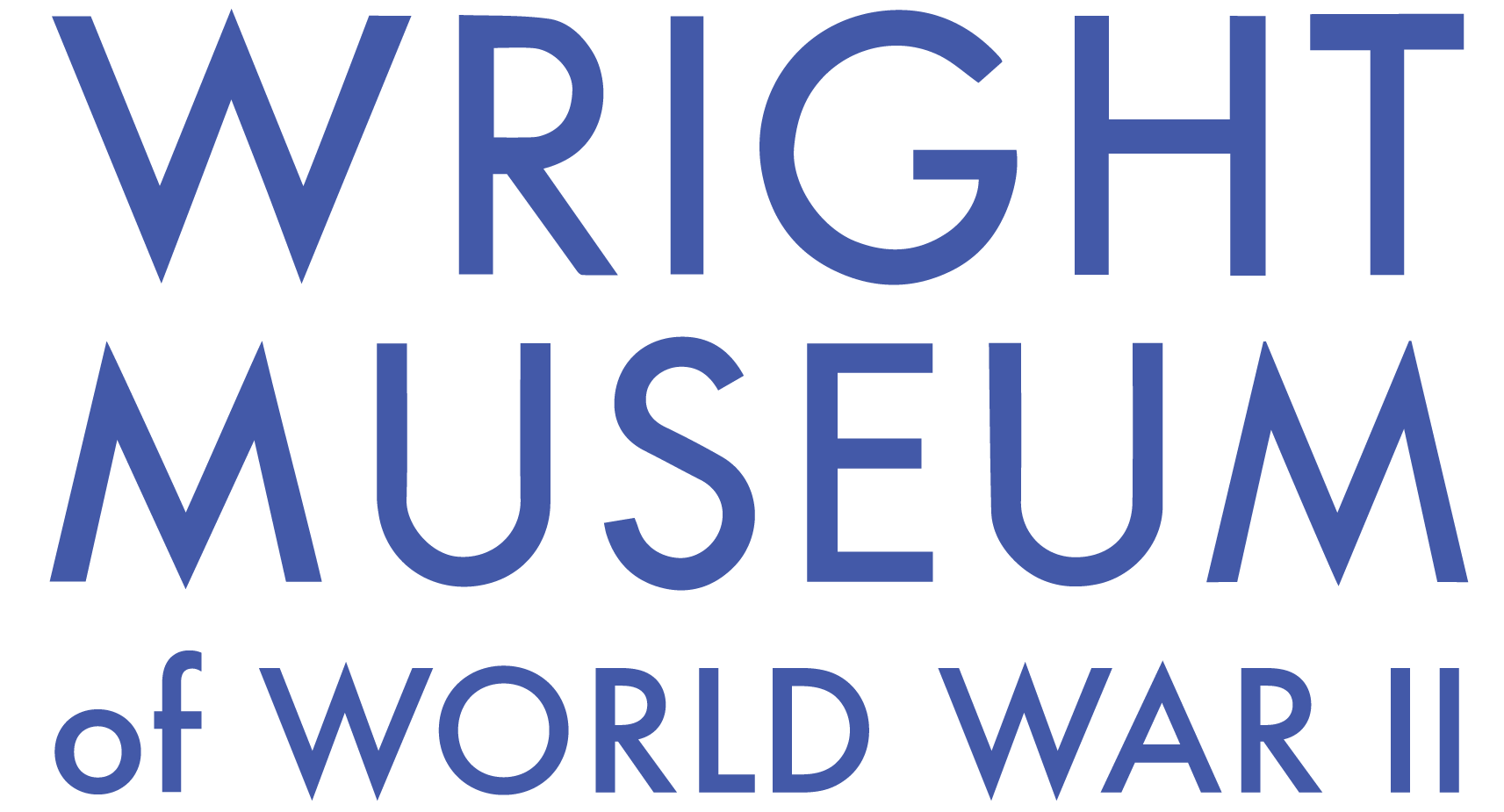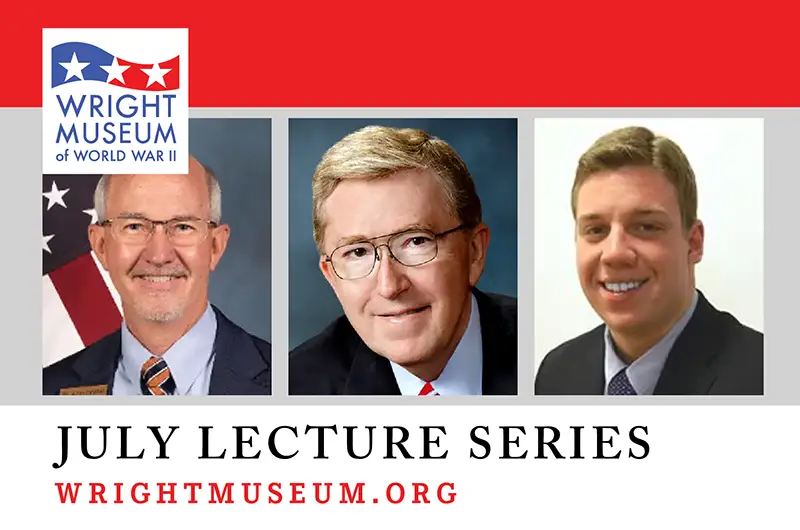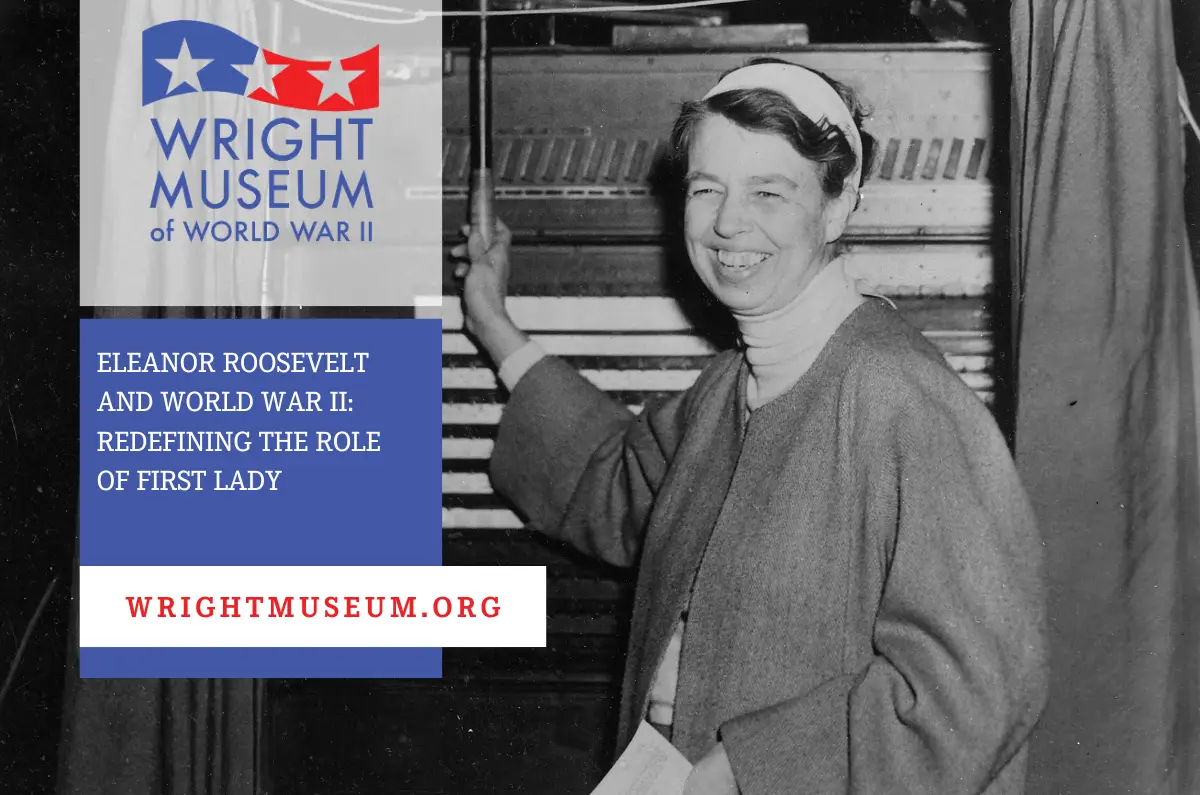In addition to July being the month we celebrate our 30th anniversary—and all the special anniversary events that will be available this month—we are truly excited about our Tuesday night Lecture Series. We’ve got topics for the athletes among us, real-life (historical) legal drama, and a night that will prove that logistics can be fascinating, not to mention we’ll even delve into how oil fueled the conflict. In other words, our Lecture Series has something for everyone.
It’s July at the Wright Museum, and you don’t want to miss a single Tuesday night with us!
Want to know more about why you should make Tuesday night date night at the Museum? Check out the information below:
All lectures begin promptly at 7:00 p.m. Doors open one hour early.
July 9th – Garret Shetrawski: The Life and Legacy of Captain Andrew Haldane
If you’ve seen the 2010 HBO miniseries The Pacific, you may remember the name Captain Andre Haldane. Haldane, aka Ack Ack, was captain of the Bowdoin College football and baseball teams. He took the skills he learned on the football field and baseball diamond and used them to lead his men bravely through the battlefield of the Pacific.
Garret Shetrawski gives us an even deeper look into this fascinating soldier’s life and his experiences in World War II. Whether you’re a sports fan or not, Haldane’s story is not one to miss, and Garret Shetrawski is just the person to tell it.
Make your reservation to attend now!
July 16th – Ed Gordon: The Other Nuremberg: The Tokyo War Crimes Trial (1946-1948)
Come for the 30th anniversary birthday bash, stay for the Tuesday night Lecture Series!
Internationally known historian, speaker, researcher, and author Ed Gordon explores the Other Nuremberg, also known as the International Military Tribunal of the Far East or the Tokyo War Crimes Tribunal. During World War II, the Empire of Japan was responsible for major war crimes and crimes against humanity.
Over six million civilian and prisoners of war were killed by the Japanese, and 27% of captured Allies died in Japanese prisons or while used as slave laborers. Ed Gordon delves into the record of brutality outlined during the war crimes tribunal that lasted from May 1946 until November 1948. Learn more about the 28 men who were tried during this time period—nine political leaders (including four former prime ministers) and nineteen military officers. Hear more about their crimes during the war, how the tribunal worked, and the fates of those tried at the Other Nuremberg.
Reserve your seat in the “courtroom” here.
July 23rd – Arthur Krulewitz: How Oil Fueled the Conflict
From the Battle of Stalingrad to the attack on Pearl Harbor, oil was an essential part of the war effort for every major power involved in World War II. After all, without oil, modern warfare is basically impossible. In fact, according to the peer-reviewed international journal Energy Research & Social Science, Allied forces used somewhere around 100 times more gasoline in World War II than in World War I. Gaining access to and controlling resources were key strategies during the war.
Arthur Krulewitz takes us through the important role oil played in the war effort. From its uses on the home front to the part it played in the eventual victory for the Allied forces, oil proved once again that it is king.
Find out more about oil’s role in World War II by reserving your seat now!
July 30th – David Dworak: The War of Supply
Modern warfare, introduced in World War II, presented one of the more complicated and critical logistical challenges of the century: how to develop an extensive support network that could supply a vast military force comprised of multiple services and many different nations thousands of miles away from their home ports. How did the Allied forces solve this logistical puzzle?
Join Dr. Dave Dworak, provost/senior academic officer for the U.S. Army War College in Carlisle, Pennsylvania and author of War of Supply: World War II Allied Logistics in the Mediterranean as he guides us through the intricacies of the challenge, how the Allied powers solved the issue, and how successfully managing such a complicated, immense support network was paramount to defeating the Nazi regime.
Join us for our last July lecture and learn how paying attention to details leads to victory.





